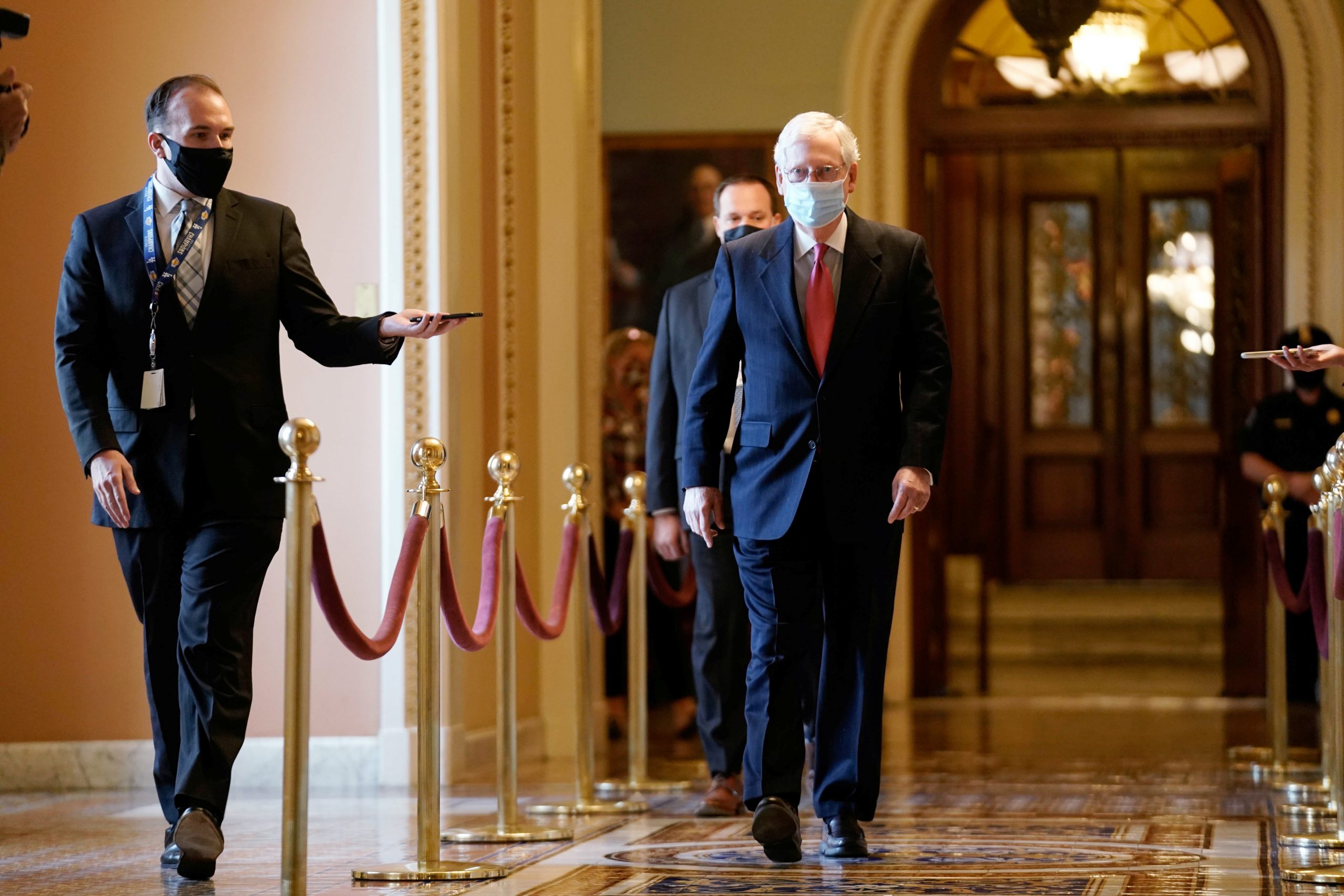President Donald Trump on Tuesday signed a stopgap measure to fund U.S. agencies for another week while Congress passed a massive COVID-19 aid and government funding package overnight aimed at bolstering the nation’s pandemic response and its battered economy.
The package includes $892 billion for coronavirus relief plus federal government funding to also avert a government shutdown – together worth about $2.3 trillion in spending for the rest of the fiscal year that ends next Sept. 30 – and is awaiting Trump’s approval to become law.
In the meantime, U.S. lawmakers moved to fund federal agencies through Dec. 28 to prevent a lapse in government operations. Trump signed the stopgap funding bill into law on Tuesday, the White House said.
The COVID-19 provisions aim to throw a lifeline to the U.S. economy after months of inaction as the novel coronavirus outbreak continues to swell nationwide, with more than 214,000 people infected every day. So far, more than 319,000 Americans have died.
The wide-ranging bill includes $600 payments to most Americans and additional money to the millions of people thrown out of work during the COVID-19 pandemic, just as earlier benefits expire on Saturday.
Still, various advocacy groups and others said that while the new round of aid was welcomed, it was far from enough to help Americans who have been struggling for months and comes too late for many. They called on President-elect Joe Biden to do more once he takes office on Jan. 20.
As part of a compromise, lawmakers left out additional Democratic-backed funds for states and cities as well as Republican-backed corporate liability protections. It also excluded COVID-19 related paid leave, among other provisions.
“It’s good news that relief is on the way for American families, small businesses, and the unemployed. But it is simply not good enough,” U.S. Conference of Mayors President and Louisville Mayor Greg Fischer said in a statement.
U.S. Treasury Secretary Steven Mnuchin has said $600 direct payment checks could be sent to people as soon as next week.
(Editing by Susan Heavey and Steve Orlofsky)

























 Continue with Google
Continue with Google